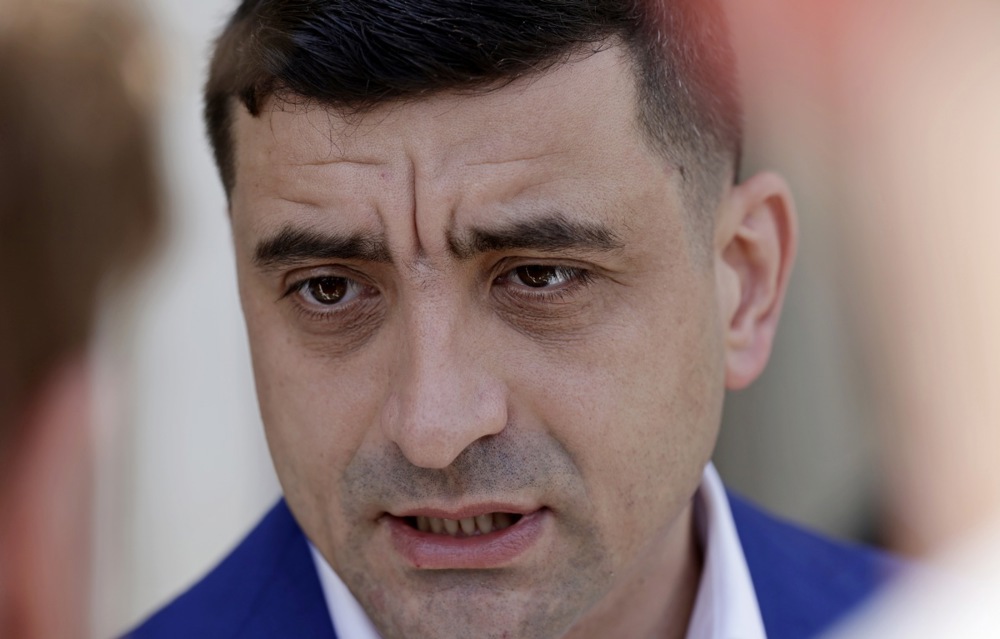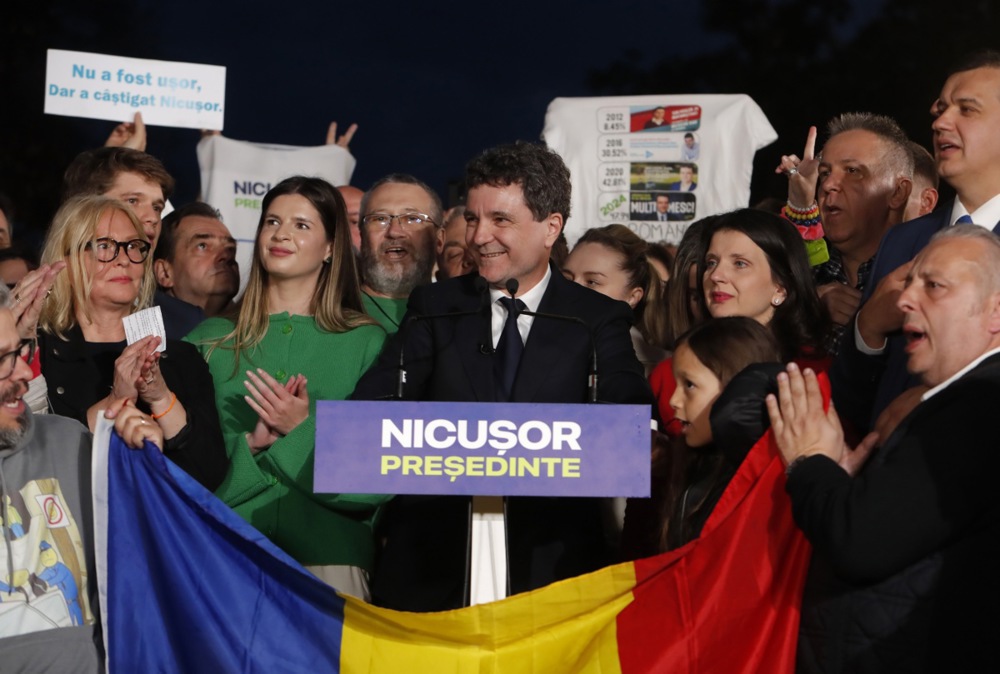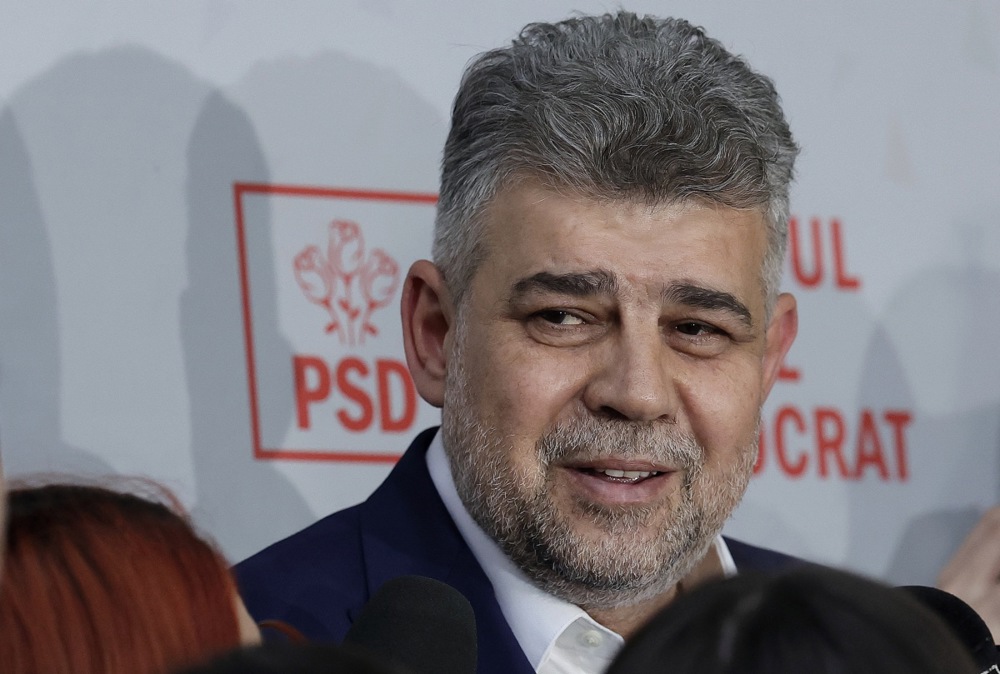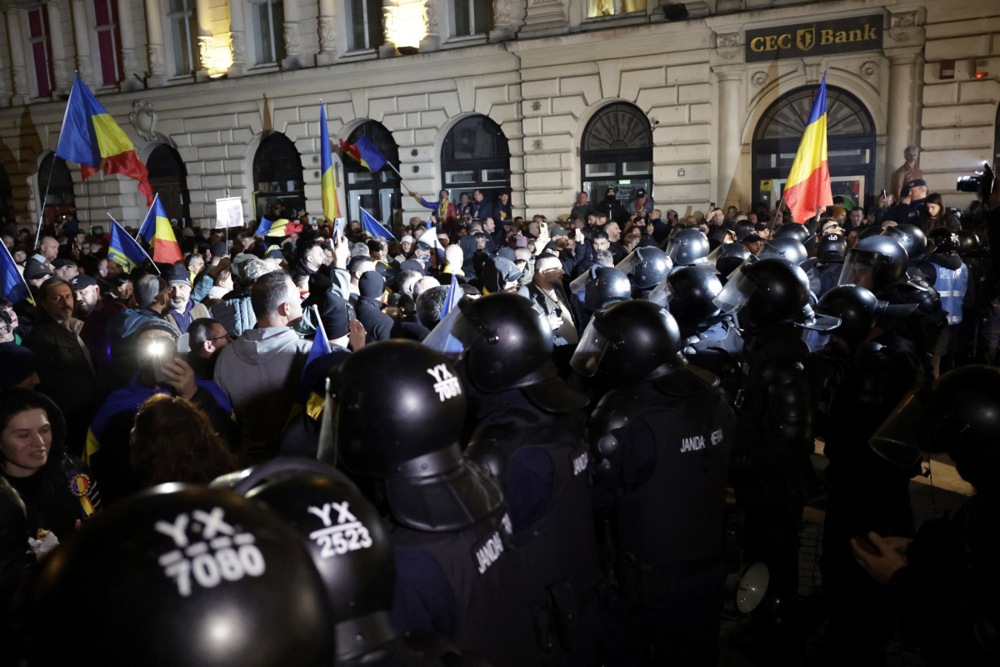Romania’s prosecutor has accused former presidential hopeful Călin Georgescu of wanting to stage a coup d’état.
Yesterday, Romania’s Prosecutor General, Alex Florența, presented the results of an investigation into the annulment of the November 2024 presidential elections. He said he found proof of a plot to take power and a massive hybrid war orchestrated by Russia, both “threatening the constitutional order”.
Next to Georgescu, 21 other defendants were sent to trial. The former presidential frontrunner risks up to 20 years in jail.
Florența alleged that Georgescu was the mastermind behind his bodyguard, Horațiu Potra, a mercenary leader . He was reportedly planning to hijack a protest near the Constitutional Court and generate violence amid the cancellation of the first round of the presidential elections, despite any such protest taking place.
“The strategy aimed, through emotional and behavioural contagion doubled by the manipulation of collective emotions, in the context of a moment of maximum social tension, to change the constitutional order or to hinder or prevent the exercise of state power,” the prosecutor said.
Potra reportedly put together a 21-member paramilitary group under his command. The alleged plan was to drive to Bucharest in seven cars and, once there, stage protests against State authorities in the hope of drawing in wider public support, the prosecutor said.
In the indictment it was alleged that the men had weapons with them, “dangerous objects, such as knives, daggers, long-bladed knives, telescopic batons, pepper sprays, boxes, axes and axe tails, two pistols and a total number of 65 pyrotechnic materials of category F4”.
In the European Union (Romania follows the same classification), fireworks and pyrotechnics are grouped into categories F1 to F4 under Directive 2013/29/EU. F4 means high hazard, for use only by professionals – large fireworks that pose significant risk if mishandled.
It was alleged by the prosecutor that Potra aimed “to distort reality, mislead the public and orient their opinion towards social tensions and discontent”.
Judicial sources shared information with Romanian media but the report itself was not published. Potra now resides in the United Arab Emirates.
In February, during raids, the police found a hidden safe with around $1 million (€950,000) in cash, plus weapons and ammunition in Potra’s former home and the prosecutor alleged this was proof of a “paramilitary operation of national destabilisation”.
COMMENT: 66% of Romanians say Ceaușescu was a good leader. Not because they forgot the crimes of Communism, but because they have witnessed "the delusions and authoritarian instincts of the snakes and thieves who now rule," writes @GElefteriu. https://t.co/Vghey6vkvj
— Brussels Signal (@brusselssignal) July 24, 2025
According to those judicial sources, Georgescu is seen by prosecutors as the driving force and a moral accomplice, carrying “significant psychological impact” on the public.
The prosecutor claimed that the gang’s plan “was to provoke collective indignation, stimulate popular revolt and create a climate of general fear”, which would have allowed Potra to implement the radical plan of hijacking the protest.
Georgescu is quoted in the report saying: “The upcoming elections are the last chance. If the system doesn’t change, we’re do … I believe God expects us to fight, not just to keep praying to Him. He gives us strength, but if we don’t use it, He’s not to blame… They must be dealt with harshly. Simple as that, not prayers and hopes.”
According to the prosecutor, Russia joined in by executing cyberattacks on key institution, combined with an aggressive online campaign using AI to spread Russian propaganda.
Ten of thousands of accounts were said to have been activated ahead of the election, to instigate messages going viral.
It was not specified what the exact ties, if any, between Russia and Georgescu were in Romanian media.
“We must take into account the fact that starting with November 2024, at the level of extremist communities, there has been an intensification of narratives and messages inciting hatred and violence associated with the campaign to promote an independent candidate [Georgescu] and created a climate of panic in society,” said Florența.
“This increase in the volume of content inciting violent actions was initiated during the first round of the elections, but the evolution was carried out systematically, through the promotion of elements of hate speech content, generated through artificial intelligence.
“The analyses carried out showed that, starting with November 27, there has been an intensification of the campaign to promote the presidential candidate at the level of groups known for disseminating disinformation narratives that ensure the link between the pro-Russian community and other communities that generate risks to public order, especially extremist and conspiracy groups”, Florența said, adding that 1.3 million Romanians were reached.
He warned that Romania was still in the crosshairs of hybrid aggression, stating: “Hybrid warfare at the moment, compared to traditional warfare, is much more insidious, much more treacherous, but with results that influence the way social and economic life is conducted.”
Reacting today, Georgescu denied wanting to stage a coup.
“Yesterday’s file — or rather, the indictment — is just a speech, nothing more. The case is an indigo copy of President Trump’s 2016 case, with the same accusations, but the actors have changed. Just as the truth showed in Trump’s case, so the truth will show itself here. Guilt creates lies, and lies create blackmail, which runs this country,” he told media.
“For the time being, in Romania, the globalist-Sorosist oligarchy is resorting to justice, which it instrumentalises like a bullet, with the aim of removing me, of giving back to the Romanian people the country, to be the Romania of the Romanians, to be a free, sovereign and dignified nation.”
His lawyer, Lucian Catrinoiu, argued that the case accusing his client of attempting to overthrow the constitutional order is a sham, with baseless allegations.
The Alliance for the Union of Romanians (AUR), the party that backed Georgescu in the elections, said in a statement: “The indictment of Călin Georgescu shows once again that we live in a police state, where the voice of the opposition is silenced through files, threats and manipulations. We stand by the president elected by the people and fight to the end for the truth.”
Russian presidential spokesman Dmitry Peskov told Russian media outlet RBC that the accusations from the Romanian prosecutor were unfounded.
“Let’s recall how Washington accused Russia of interfering in the elections, trying to destabilise, etc. In the case of Romania, the same!” he said.
The representative of the department, Maria Zakharova, previously called the accusations against Moscow groundless and ridiculous.
Georgescu won the first round of the presidential elections but was later disqualified by the Constitutional Court — first over alleged campaign financing issues and subsequently on grounds of alleged Russian interference. Twice the evidence was seen as rather meager.
George Simion of the AUR party ended up being endorsed by Georgescu but lost the elections that were ultimately won in May by former Bucharest mayor Nicușor Dan. That same month, Georgescu announced his retirement from politics.
Meanwhile, Telegram founder Pavel Durov claimed that French intelligence chief Nicolas Lerner had asked him to restrict the channels of Conservative Romanian politicians — a request he said he “categorically refused”. Paris dismissed the allegation as fake.
Dan’s opponent, George Simion, demanded the elections be annulled, citing “external interference by state and non-state actors,” but the Constitutional Court rejected his appeal.





